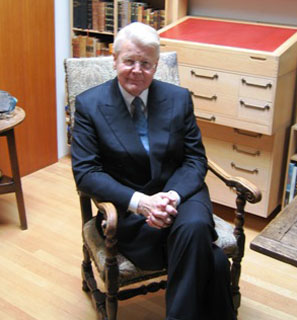Is PM Harper really inventing a new Canada .. and should we be very afraid?
Dec 19th, 2011 | By Citizen X | Category: In Brief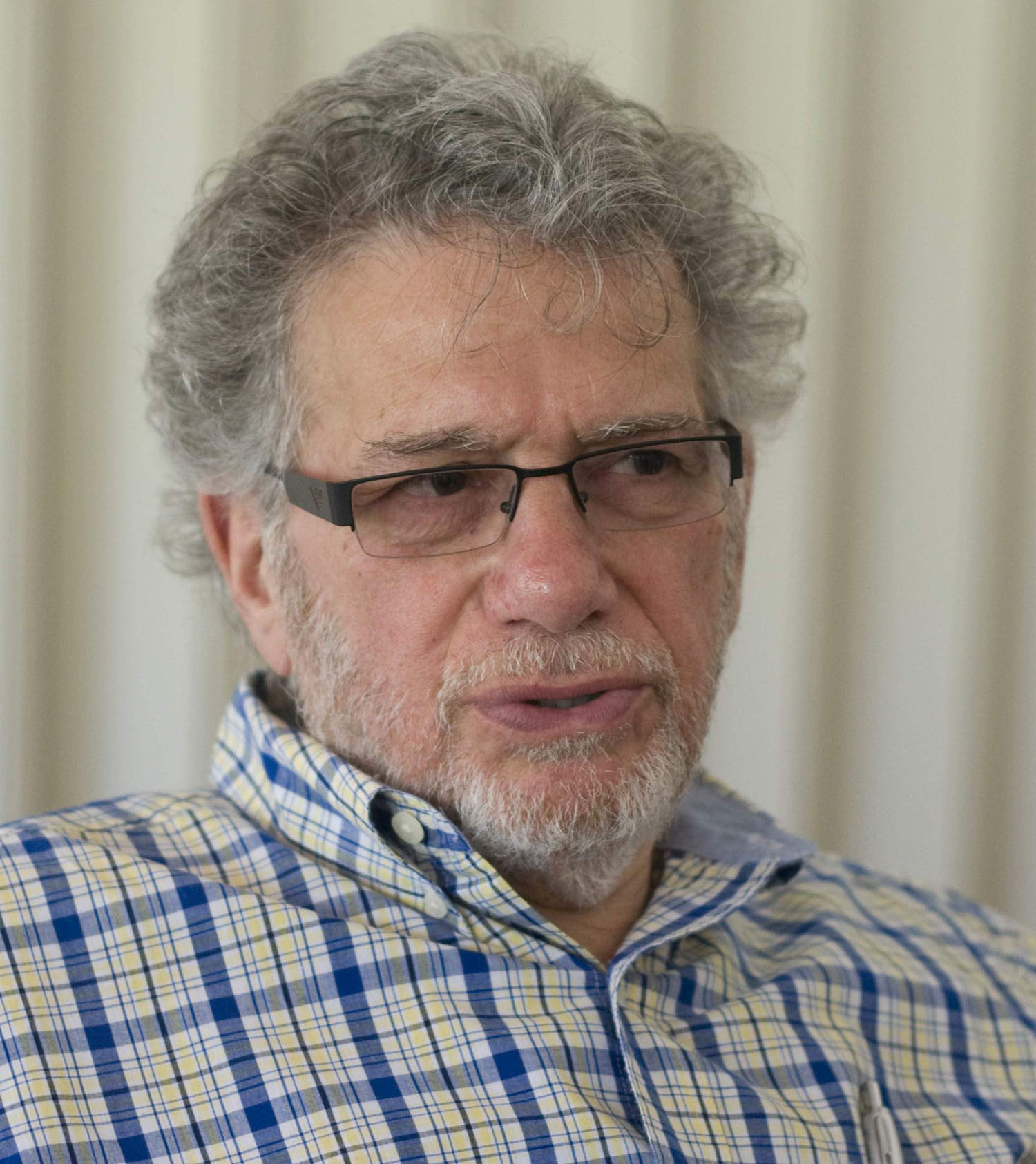
Gerald Caplan, Canadian academic, public policy analyst, commentator and NDP political activist, now in his early 70s. March 2011.
TORONTO, CANADA. The number one spot in the Globe and Mail list of its most popular stories on the last weekend before Christmas 2011 was held by a Gerald Caplan comment piece, headlined “Be very afraid: Stephen Harper is inventing a new Canada.” And I am wondering, well yes, of course, but is it true?
Caplan’s lead paragraph reads: “Stephen Harper first became Prime Minister in 2006 and has already dramatically transformed the old Canada. But with no election due for four more years, we ain’t seen nothing yet.” He goes on: “It’s in the nature of true believers and ideologues to believe that any means to their sacred ends are justified … There was never a Trudeauland or Mulroneyland or Chrétienland, but as The Globe’s Lawrence Martin has made us understand, there is already a Harperland whose nature is quite apparent.”
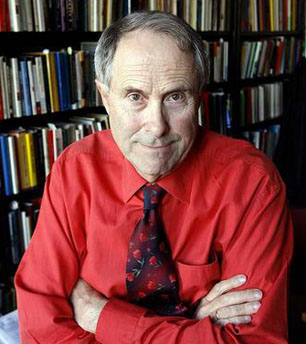
Tom Flanagan, University of Calgary political scientist and Reform/Conservative political activist: don’t let the red shirt fool you! LARRY MACDOUGAL, TORONTO STAR.
Mr. Caplan continues: “A central tenet of the new reality is the repudiation of the need for anything as irrelevant as evidence, facts or rationality whenever they are inconvenient … lying is the very mother’s milk of Harperland morality … the new values also reverse decades of cherished Canadian policies … The new Canada is a place where militarism is given pride of place over peacemaking … Politics as war is exactly what former Harper strategist Tom Flanagan has long advocated. A Globe piece by Mr. Flanagan before the 2011 election was actually titled ‘An election is war by other means’.”
And finally “Be very afraid: Stephen Harper is inventing a new Canada” concludes with: “Ironically, if you want to hear from the other Canada, the former Canada, the one so much admired by the world, you should (and still can) listen to last Sunday’s interview on CBC radio’s Sunday Edition between host Michael Enright and Iceland’s President, Olafur Grimmson. There, in Mr. Grimmson, was the voice of humanity, thoughtfulness, pragmatism and commonsense. He is the perfect Canadian and would make the perfect Canadian prime minister.”
My own briefly meditated first reaction to all this is that it does contain a few clear grains of the hard but plain enough truth. It is not at all clear to me, however, that “Stephen Harper is inventing a new Canada.” The Stephen Harper who has been Prime Minister of Canada for close to half a dozen years now – and has finally won at least a majority of seats in the lopsided Canadian House of Commons (with far from a majority of the Canada-wide popular vote) – seems to me much more like someone who is trying to restore or reinvent an older Canada, rather than invent a new one. (A descendant, as it were, of the “20-going-on-40” son of an old Imperial Oil executive, who sought some kind of liberation by moving from suburban Toronto, Ontario to Edmonton, Alberta in the late 1970s.)
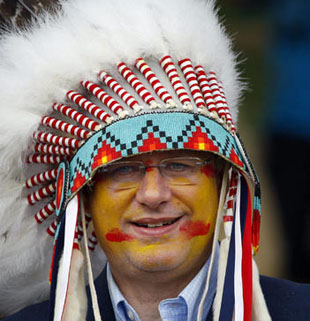 I am not at all sure either that the Stephen Harper who is trying to reinvent the Canada of his father’s (or even his grandfather’s?) youth is someone of whom those of us who share almost none of his adult aspirations need to be very afraid. (A little intelligently afraid? Maybe. But certainly not very afraid.) His successes it seems to me flow almost directly from our own recent failures. All we have to do to defeat him is get our own acts much more together. Or, failing that (in some equally traditional Canadian manner?), we can just wait for his obsolete vision of the Canadian future to wither to next to nothing on the weakening vine, as it is almost certainly bound to do, eventually if not quite before the next federal election in 2015?
I am not at all sure either that the Stephen Harper who is trying to reinvent the Canada of his father’s (or even his grandfather’s?) youth is someone of whom those of us who share almost none of his adult aspirations need to be very afraid. (A little intelligently afraid? Maybe. But certainly not very afraid.) His successes it seems to me flow almost directly from our own recent failures. All we have to do to defeat him is get our own acts much more together. Or, failing that (in some equally traditional Canadian manner?), we can just wait for his obsolete vision of the Canadian future to wither to next to nothing on the weakening vine, as it is almost certainly bound to do, eventually if not quite before the next federal election in 2015?
Not exactly a new right-wing libertarian Canadian economic policy?
Just a few more holiday season thoughts spring to my own mind on Gerald Caplan’s 2011 holiday season warning “Be very afraid: Stephen Harper is inventing a new Canada.”
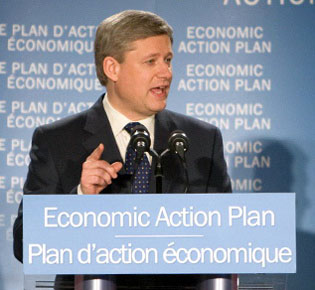
What is the difference between the “Harper Government’s Economic Action Plan” in Canada and the old Five Year Plans in the USSR?
The first is that Mr. Caplan is picturing the Mr. Harper who has finally become Prime Minister of Canada as rather more of a garden-variety right-wing ideologue than he has proved to be – as yet at any rate.
As the Toronto Star pointed out earlier this year: “In a 1997 speech to the Council for National Policy, a conservative US think tank, Harper said: ‘Canada is a Northern European welfare state in the worst sense of the term, and very proud of it.’ … In a 2000 editorial, Harper wrote that ‘Canada appears content to become a second-tier socialist country.’” Yet so far, it does seem that was then in opposition and this is now, in office and liking it very much thank you. “Canada’s Economic Action Plan” has (again so far) been in a much more traditionally Canadian spirit of pragmatic government intervention in the interests of economic growth in hard times, etc, etc.
And then consider, as just one of various further examples, Carol Goar’s piece in this past Thursday’s Toronto Star: “Harper’s unlikely social breakthrough … The pickings have been slim this year for Canadians looking to their government for help, support or relief … Prime Minister Stephen Harper’s watchwords are restraint, austerity and cutbacks. Most premiers and mayors have followed his lead, leaving nowhere for the unemployed, poor, hungry and hopeless to turn … But, against this dismal backdrop, one social innovation did make it onto the national agenda. Approximately half a million caregivers – people who voluntarily look after infirm spouses, frail, elderly parents and children with serious health problems – will soon get Canada’s first Family Caregiver Tax Credit.”
Bringing the (new) West in to the confederation of 1867 at last …
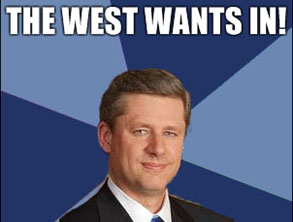 Mr. Caplan, it could also be argued, I think, might profit by heeding, in some degree at least, some advice from his fellow NDP activist Brian Topp, viz: “Mr. Topp … doesn’t like the way the Liberals demonize the Prime Minister. ‘Mr. Harper is an adversary; he’s not a monster.’”
Mr. Caplan, it could also be argued, I think, might profit by heeding, in some degree at least, some advice from his fellow NDP activist Brian Topp, viz: “Mr. Topp … doesn’t like the way the Liberals demonize the Prime Minister. ‘Mr. Harper is an adversary; he’s not a monster.’”
Put another way, Stephen Harper has made one real contribution to Canada’s political development. And in the interests of progressive realism even the kind of aggressively negative assessment of his record that Gerald Caplan offers should make some bow in this direction.
Mr. Harper is not in fact the first Canadian prime minister who has lived in Alberta. That honour belongs to the Conservative Richard Bedford Bennett (1930—1935) – who also shared with Stephen Harper an instinct for re-embracing Canada’s colonial history as first self-governing dominion of the British empire, eg: “Bennett restored the award of titles to Canadians and several received Knighthoods.”
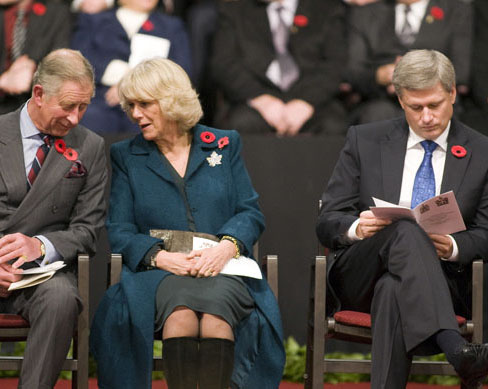 But the Western Canada of Bennett’s Depression-ridden 1930s was still very new. Aboriginal people of Canada still accounted for the majority of the human population in the British Columbia that joined the 1867 confederation in the summer of 1871. Alberta and Saskatchewan did not become provinces until 1905. (And Bennet himself began his political career in the old Northwest territorial legislature.) Say whatever else you like, Stephen Harper has brought the new rapidly growing – and resource economy booming – Canadian West of the early 21st century in to the corridors of federal power in Ottawa at last. It is one of his current strengths – to which virtually none of his opponents seem to be paying at all enough attention, even now.
But the Western Canada of Bennett’s Depression-ridden 1930s was still very new. Aboriginal people of Canada still accounted for the majority of the human population in the British Columbia that joined the 1867 confederation in the summer of 1871. Alberta and Saskatchewan did not become provinces until 1905. (And Bennet himself began his political career in the old Northwest territorial legislature.) Say whatever else you like, Stephen Harper has brought the new rapidly growing – and resource economy booming – Canadian West of the early 21st century in to the corridors of federal power in Ottawa at last. It is one of his current strengths – to which virtually none of his opponents seem to be paying at all enough attention, even now.
Survivals of the young Stephen Harper who lived in a Whyte Avenue walk-up and worshipped Pierre Elliot Trudeau
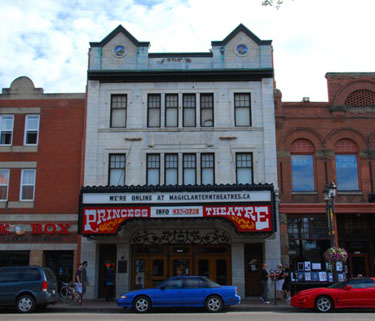
The Princess theatre on Whyte Avenue in Edmonton – which became “a leading art house” in the city in the late 1970s. Who knows? The young Stephen Harper might even have patronized the place.
For some of us (and even though we had opportunities to learn before), it came as a surprise to hear recently that the very young Stephen Harper who dropped out of the University of Toronto and moved to Edmonton in the late 1970s at first “lived in a walk-up on Whyte Avenue” and “worshipped Pierre Elliot Trudeau.”
There of course seems very little of this now ancient legacy that still survives. But the more I think about it, the more it strikes me that there are a few things. And they help explain some of Mr. Harper’s success as well. To start with, as even US President Barack Obama admires, Stephen Harper speaks French rather well for an anglophone Canadian from Alberta. And he regularly makes sure that his public announcements and pronouncements include some serious bow to the language of the first people who called themselves Canadians.
There was also a better grasp of federalism and the French Canadians in the late November 2006 Canadian House of Commons recognition of the Quebecois as a nation within a united Canada – which Stephen Harper joined in and can even be said to have encouraged – than many others in his party and from his adopted part of the country have often been willing to acknowledge.
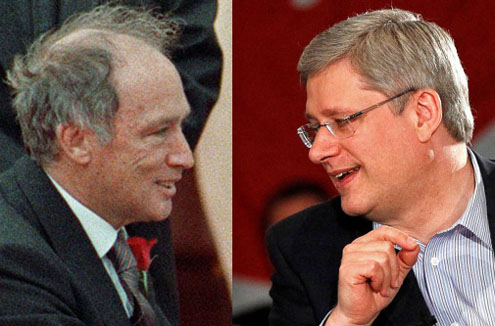 It is, of course again, true enough that Prime Minister Pierre Trudeau would not have supported this kind of recognition at all. But here at least Mr. Harper just may be more up to date. (And so, some recent biographical writing does seem to hint at, might Trudeau himself, if he were still alive?) It sometimes seems to me as well that time will finally show how Pierre Trudeau was in fact more decentralist in his view of Canadian federalism, in Mr. Harper’s style, than is now usually recognized. And there is already a little to suggest that PM Harper has a little more of the Trudeau kind of centralism in his view of things than even the Stephen Harper of 10 years ago might have imagined?
It is, of course again, true enough that Prime Minister Pierre Trudeau would not have supported this kind of recognition at all. But here at least Mr. Harper just may be more up to date. (And so, some recent biographical writing does seem to hint at, might Trudeau himself, if he were still alive?) It sometimes seems to me as well that time will finally show how Pierre Trudeau was in fact more decentralist in his view of Canadian federalism, in Mr. Harper’s style, than is now usually recognized. And there is already a little to suggest that PM Harper has a little more of the Trudeau kind of centralism in his view of things than even the Stephen Harper of 10 years ago might have imagined?
The president of Iceland and the real new Canada that still eludes both PM Harper and his opponents?
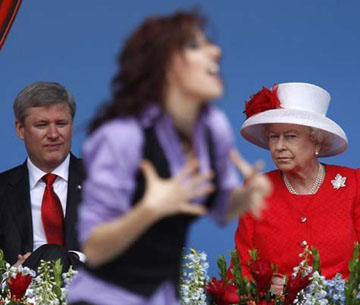
“Canada's Queen visits her kingdom ... Does Her Majesty approve? ... Prime Minister Stephen Harper and Queen Elizabeth watch a performer during Canada Day celebrations on Parliament Hill,” 2010.
Whatever else, again, what Pierre Trudeau finally had that still makes him such an interesting Canadian prime minister was something that amounted to a new vision of a new Canada, after the inevitable decline and fall of the old British empire, in the wake of the Second World War.
You can call the Harper government’s reaction against Trudeau’s new vision – with its ultimate expression in the Constitution Act 1982 and its Canadian Charter of Rights and Freedoms – “inventing a new Canada,” as Mr. Caplan puts it. But, again, it becomes clearer and clearer, in the early days of the ultimate Harper majority government, that “reinventing an old Canada” is much closer to what is actually going on. (Cf, eg, the worldview of the Ontario Conservative premier of the 1920s, Howard Ferguson: “The public has no intelligence … With our Utopian, wide-open franchise the mob rules. The problem is to capture the imagination of the mob.”)
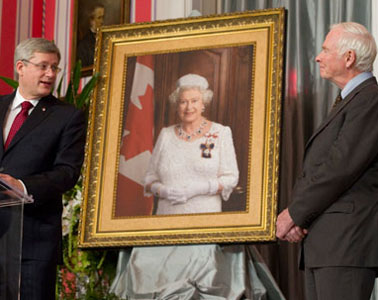
Governor General David Johnston looks on as Prime Minister Stephen Harper announces the Diamond Jubilee medal design for the Diamond Jubillee of Her Majesty Queen Elizabeth II at Rideau Hall in Ottawa, Thursday February 3, 2011. (THE CANADIAN PRESS/Adrian Wyld).
Nothing clarifies this point quite as boldly, it seems to me, as the Harper government’s bizarre increasing determination to bolster the inevitably long-term-declining fortunes of the British monarchy in Canada. So-called “Reform-a-tory” Conservatives like the political godfather Preston Manning or the old Alberta Report journalist Lorne Gunter are in fact Canadian republicans – and can arguably claim to be urging some kind of “new” right-wing agenda for Canada. But PM Harper has chosen to follow a different drummer, perhaps because in his growing governing-party wisdom he has come to see that there can be no serious “new” right-wing agenda for Canada. The only workable right-wing agenda the country can have is an old one – still twisted by medieval if not quite primeval values (of the sort that the British monarchy does continue to embody, in Canada and elsewhere, etc, etc, etc…)
 For the moment at any rate, it remains Stephen Harper’s great good fortune that, despite some recent promising minor steps ahead, among both Liberals and New Democrats, his left-wing opposition has still not seriously begun to recognize just how much value there could be in its ancient Canadian republican strand, as a powerful weapon in the struggle to finally bring the Harper government that is riding so high at the moment down. And almost nothing perhaps shows this quite so nicely as Gerald Caplan’s concluding reference to Iceland’s President, Olafur Grimmson, as “the perfect Canadian prime minister.” To properly guard against Stephen Harper and any future prime ministerial incarnations of him (or even Pierre Trudeau, etc, etc), what we really do need in Canada, in fact, is a ceremonial head-of-state president like Olafur Grimmson in Iceland today (an extension and ultimate patriation, as it were, of the office now known as Governor General of Canada). And if you still do have the strength and enthusiasm to crazily carry on here right now, with Santa Claus and a thousand department stores breathing hotly down your neck, you could do worse than consult a posting on this website from not all that long ago: “March 6 referendum in Iceland: one model for democratizing governor general in Canada.”
For the moment at any rate, it remains Stephen Harper’s great good fortune that, despite some recent promising minor steps ahead, among both Liberals and New Democrats, his left-wing opposition has still not seriously begun to recognize just how much value there could be in its ancient Canadian republican strand, as a powerful weapon in the struggle to finally bring the Harper government that is riding so high at the moment down. And almost nothing perhaps shows this quite so nicely as Gerald Caplan’s concluding reference to Iceland’s President, Olafur Grimmson, as “the perfect Canadian prime minister.” To properly guard against Stephen Harper and any future prime ministerial incarnations of him (or even Pierre Trudeau, etc, etc), what we really do need in Canada, in fact, is a ceremonial head-of-state president like Olafur Grimmson in Iceland today (an extension and ultimate patriation, as it were, of the office now known as Governor General of Canada). And if you still do have the strength and enthusiasm to crazily carry on here right now, with Santa Claus and a thousand department stores breathing hotly down your neck, you could do worse than consult a posting on this website from not all that long ago: “March 6 referendum in Iceland: one model for democratizing governor general in Canada.”
